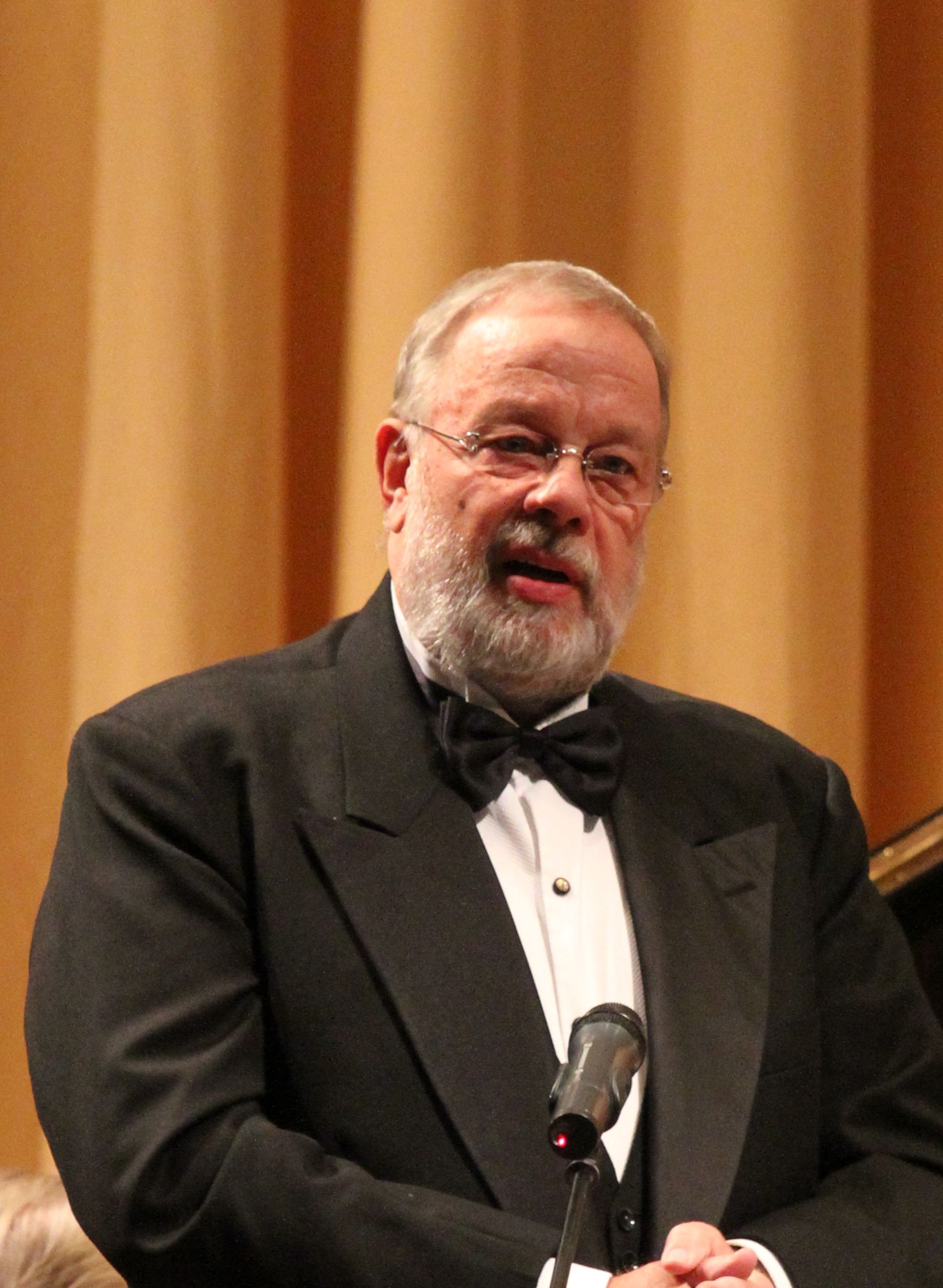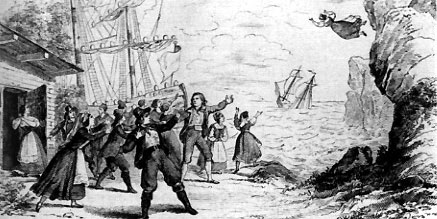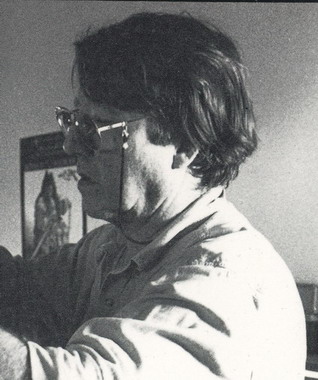|
Matti Salminen
Matti Kalervo Salminen (born 7 July 1945) is a Finnish operatic bass, now retired, who has sung at the most important opera houses of the world, including the Metropolitan and Bayreuth Festival. He is distinguished by an imposing figure and height (6' 5"), a cavernous, heavy, dark voice with an expansive upper register, and an expressive face. According to one reviewer, in his prime Salminen was "... simply the largest bass voice in captivity. It is not just its roar in powering over Wagner's maximum orchestra, but the way he carves the sonority and forms the color." Salminen has a special gift for playing menacing, threatening characters. He performed as Fafner and Hagen in the PBS video broadcast ''Ring Cycle'' from the Metropolitan Opera, for the largest viewing-audience of the ''Ring'' in history. Biography Salminen was born in Turku. In his youth he earned money for voice lessons by singing Finnish tangos in night clubs. He has published an anthology of Finnish tangos. ... [...More Info...] [...Related Items...] OR: [Wikipedia] [Google] [Baidu] |
Die Meistersinger Von Nurnberg
Die, as a verb, refers to death, the cessation of life. Die may also refer to: Games * Die, singular of dice, small throwable objects used for producing random numbers Manufacturing * Die (integrated circuit), a rectangular piece of a semiconductor wafer * Die (manufacturing), a material-shaping device * Die (philately) * Coin die, a metallic piece used to strike a coin * Die casting, a material-shaping process ** Sort (typesetting), a cast die for printing * Die cutting (web), process of using a die to shear webs of low-strength materials * Die, a tool used in paper embossing * Tap and die, cutting tools used to create screw threads in solid substances * Tool and die, the occupation of making dies Arts and media Music * ''Die'' (album), the seventh studio album by rapper Necro * Die (musician), Japanese musician, guitarist of the band Dir en grey * DJ Die, British DJ and musician with Reprazent * "DiE", a 2013 single by the Japanese idol group BiS * die!, an inactive German ... [...More Info...] [...Related Items...] OR: [Wikipedia] [Google] [Baidu] |
Der Fliegende Holländer
' (''The Flying Dutchman''), WWV 63, is a German-language opera, with libretto and music by Richard Wagner. The central theme is redemption through love. Wagner conducted the premiere at the Königliches Hoftheater Dresden in 1843. Wagner claimed in his 1870 autobiography '' Mein Leben'' that he had been inspired to write the opera following a stormy sea crossing he made from Riga to London in July and August 1839. In his 1843 '' Autobiographic Sketch'', Wagner acknowledged he had taken the story from Heinrich Heine's retelling of the legend in his 1833 satirical novel ''The Memoirs of Mister von Schnabelewopski'' (''Aus den Memoiren des Herrn von Schnabelewopski''). This work shows early attempts at operatic styles that would characterise his later music dramas. In ''Der fliegende Holländer'' Wagner uses a number of leitmotifs (literally, "leading motifs") associated with the characters and themes. The leitmotifs are all introduced in the overture, which begins with a w ... [...More Info...] [...Related Items...] OR: [Wikipedia] [Google] [Baidu] |
Siegfried (opera)
''Siegfried'' (), WWV 86C, is the third of the four music dramas that constitute '' Der Ring des Nibelungen'' (''The Ring of the Nibelung''), by Richard Wagner. It premiered at the Bayreuth Festspielhaus on 16 August 1876, as part of the first complete performance of ''The Ring'' cycle. Background and context The libretto of ''Siegfried'' was drafted by Wagner in November–December 1852, based on an earlier version he had prepared in May–June 1851 and originally entitled ''Jung-Siegfried'' (''Young Siegfried''), later changed to ''Der junge Siegfried''. The musical composition was commenced in 1856, but not finally completed until 1871.Millington, (n.d.) The libretto arose from Wagner's gradual reconception of the project he had initiated with his libretto ''Siegfrieds Tod'' (''Siegfried's Death'') which was eventually to be incarnated as ''Götterdämmerung'', the final section of the Ring cycle. Having grappled with his text for ''Siegfrieds Tod'', and indeed having und ... [...More Info...] [...Related Items...] OR: [Wikipedia] [Google] [Baidu] |
Patrice Chéreau
Patrice Chéreau (; 2 November 1944 – 7 October 2013) was a French opera and theatre director, filmmaker, actor and producer. In France he is best known for his work for the theatre, internationally for his films '' La Reine Margot'' and ''Intimacy'', and for his staging of the ''Jahrhundertring'', the centenary ''Ring Cycle'' at the Bayreuth Festival in 1976. Winner of almost twenty movie awards, including the Cannes Jury Prize and the Golden Berlin Bear, Chéreau served as president of the jury at the 2003 Cannes festival. From 1966, he was artistic director of the ''Public-Theatre'' in the Parisian suburb of Sartrouville, where in his team were stage designer Richard Peduzzi, costume designer Jacques Schmidt and lighting designer André Diot, with whom he collaborated in many later productions. From 1982, he was director of "his own stage" at the Théâtre Nanterre-Amandiers at Nanterre where he staged plays by Jean Racine, Marivaux and Shakespeare as well as works by ... [...More Info...] [...Related Items...] OR: [Wikipedia] [Google] [Baidu] |
Pierre Boulez
Pierre Louis Joseph Boulez (; 26 March 1925 – 5 January 2016) was a French composer, conductor and writer, and the founder of several musical institutions. He was one of the dominant figures of post-war Western classical music. Born in Montbrison in the Loire department of France, the son of an engineer, Boulez studied at the Conservatoire de Paris with Olivier Messiaen, and privately with Andrée Vaurabourg and René Leibowitz. He began his professional career in the late 1940s as music director of the Renaud-Barrault theatre company in Paris. He was a leading figure in avant-garde music, playing an important role in the development of integral serialism (in the 1950s), controlled chance music (in the 1960s) and the electronic transformation of instrumental music in real time (from the 1970s onwards). His tendency to revise earlier compositions meant that his body of work was relatively small, but it included pieces regarded by many as landmarks of twentieth-century music ... [...More Info...] [...Related Items...] OR: [Wikipedia] [Google] [Baidu] |
Jahrhundertring
The ''Jahrhundertring'' (''Centenary Ring'') was the production of Richard Wagner's ''Ring Cycle'', '' Der Ring des Nibelungen'', at the Bayreuth Festival in 1976, celebrating the centenary of both the festival and the first performance of the complete cycle. The festival was directed by Wolfgang Wagner and the production was created by the French team of conductor Pierre Boulez, stage director Patrice Chéreau, stage designer Richard Peduzzi, costume designer Jacques Schmidt and lighting designer André Diot. The cycle was shown first in 1976, then in the following years until 1980. It was filmed for television in 1979 and 1980. While the first performance caused "a near-riot" for its brash modernity, the staging established a standard, termed '' Regietheater'' (director's theater), for later productions. Centenary Festival director Wolfgang Wagner selected the composer Pierre Boulez as the conductor for the centenary celebration of Wagner's most complex work, which had b ... [...More Info...] [...Related Items...] OR: [Wikipedia] [Google] [Baidu] |
Das Rheingold
''Das Rheingold'' (; ''The Rhinegold''), WWV 86A, is the first of the four music dramas that constitute Richard Wagner's '' Der Ring des Nibelungen'' (English: ''The Ring of the Nibelung''). It was performed, as a single opera, at the National Theatre Munich on 22 September 1869, and received its first performance as part of the ''Ring'' cycle at the Bayreuth Festspielhaus, on 13 August 1876. Wagner wrote the ''Ring'' librettos in reverse order, so that ''Das Rheingold'' was the last of the texts to be written; it was, however, the first to be set to music. The score was completed in 1854, but Wagner was unwilling to sanction its performance until the whole cycle was complete; he worked intermittently on this music until 1874. The 1869 Munich premiere of ''Das Rheingold'' was staged, much against Wagner's wishes, on the orders of his patron, King Ludwig II of Bavaria. Following its 1876 Bayreuth premiere, the ''Ring'' cycle was introduced into the worldwide repertory, with p ... [...More Info...] [...Related Items...] OR: [Wikipedia] [Google] [Baidu] |
Die Walküre
(; ''The Valkyrie''), WWV 86B, is the second of the four music dramas that constitute Richard Wagner's '' Der Ring des Nibelungen'' (English: ''The Ring of the Nibelung''). It was performed, as a single opera, at the National Theatre Munich on 26 June 1870, and received its first performance as part of the ''Ring'' cycle at the Bayreuth Festspielhaus on 14 August 1876. As the ''Ring'' cycle was conceived by Wagner in reverse order of performance, ''Die Walküre'' was the third of the four texts to be written, although Wagner composed the music in performance sequence. The text was completed by July 1852, and the music by March 1856. Wagner largely followed the principles related to the form of musical drama, which he had set out in his 1851 essay '' Opera and Drama'' under which the music would interpret the text emotionally, reflecting the feelings and moods behind the work, using a system of recurring leitmotifs to represent people, ideas, and situations rather than the co ... [...More Info...] [...Related Items...] OR: [Wikipedia] [Google] [Baidu] |
Parsifal
''Parsifal'' ( WWV 111) is an opera or a music drama in three acts by the German composer Richard Wagner and his last composition. Wagner's own libretto for the work is loosely based on the 13th-century Middle High German epic poem '' Parzival'' of the '' Minnesänger'' Wolfram von Eschenbach, recounting the story of the Arthurian knight Parzival (Percival) and his quest for the Holy Grail. Wagner conceived the work in April 1857, but did not finish it until 25 years later. In composing it he took advantage of the particular acoustics of his Bayreuth Festspielhaus. ''Parsifal'' was first produced at the second Bayreuth Festival in 1882. The Bayreuth Festival maintained a monopoly on ''Parsifal'' productions until 1903, when the opera was performed at the Metropolitan Opera in New York. Wagner described ''Parsifal'' not as an opera, but as (a festival play for the consecration of the stage). At Bayreuth a tradition has arisen that audiences do not applaud at the end o ... [...More Info...] [...Related Items...] OR: [Wikipedia] [Google] [Baidu] |
Khovanshchina
''Khovanshchina'' ( rus, Хованщина, , xɐˈvanʲɕːɪnə, Ru-Khovanshchina_version.ogg, sometimes rendered ''The Khovansky Affair'') is an opera (subtitled a 'national music drama') in five acts by Modest Mussorgsky. The work was written between 1872 and 1880 in St. Petersburg, Russia. The composer wrote the libretto based on historical sources. The opera was almost finished in piano score when the composer died in 1881, but the orchestration was almost entirely lacking. Like Mussorgsky's earlier '' Boris Godunov'', ''Khovanshchina'' deals with an episode in Russian history, first brought to the composer's attention by his friend the critic Vladimir Stasov. It concerns the rebellion of Prince Ivan Khovansky, the Old Believers, and the Muscovite Streltsy against the regent Sofia Alekseyevna and the two young Tsars Peter the Great and Ivan V, who were attempting to institute Westernizing reforms in Russia. Khovansky had helped to foment the Moscow Uprising of 1 ... [...More Info...] [...Related Items...] OR: [Wikipedia] [Google] [Baidu] |
Boris Godunov (opera)
''Boris Godunov'' ( rus, Борис Годунов, links=no, Borís Godunóv ) is an opera by Modest Mussorgsky (1839–1881). The work was composed between 1868 and 1873 in Saint Petersburg, Russia. It is Mussorgsky's only completed opera and is considered his masterpiece. Its subjects are the Russian ruler Boris Godunov, who reigned as Tsar (1598 to 1605) during the Time of Troubles, and his nemesis, the False Dmitriy (reigned 1605 to 1606). The Russian-language libretto was written by the composer, and is based on the 1825 drama ''Boris Godunov'' by Aleksandr Pushkin, and, in the Revised Version of 1872, on Nikolay Karamzin's ''History of the Russian State''. Among major operas, ''Boris Godunov'' shares with Giuseppe Verdi's '' Don Carlos'' (1867) the distinction of having an extremely complex creative history, as well as a great wealth of alternative material. The composer created two versions—the Original Version of 1869, which was rejected for production by the Imper ... [...More Info...] [...Related Items...] OR: [Wikipedia] [Google] [Baidu] |



.jpg)
_by_Max_Brückner.jpg)


